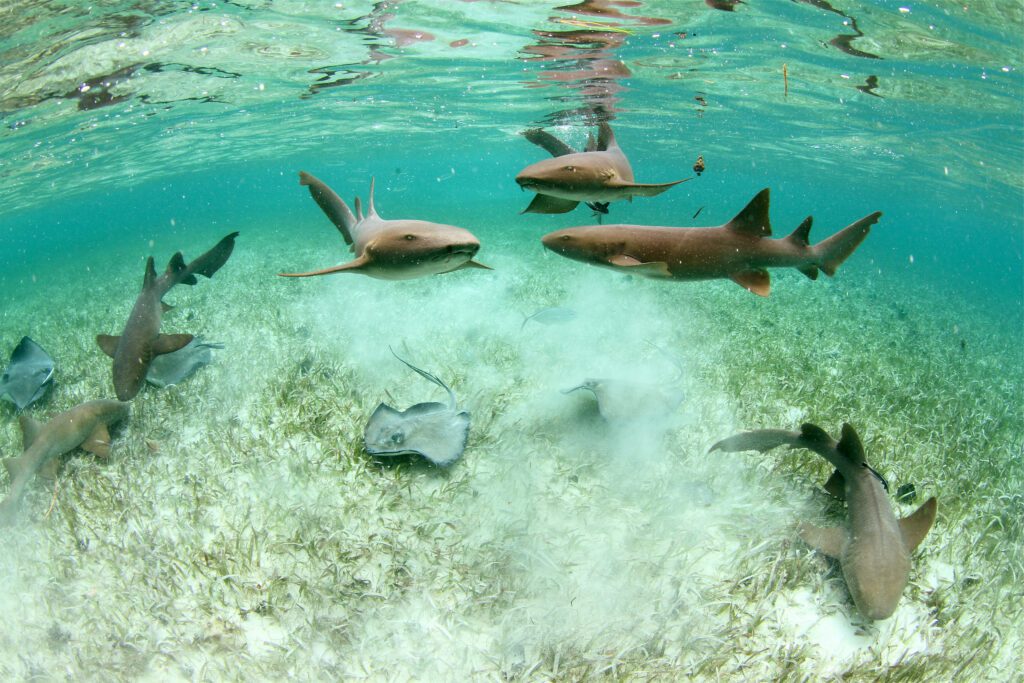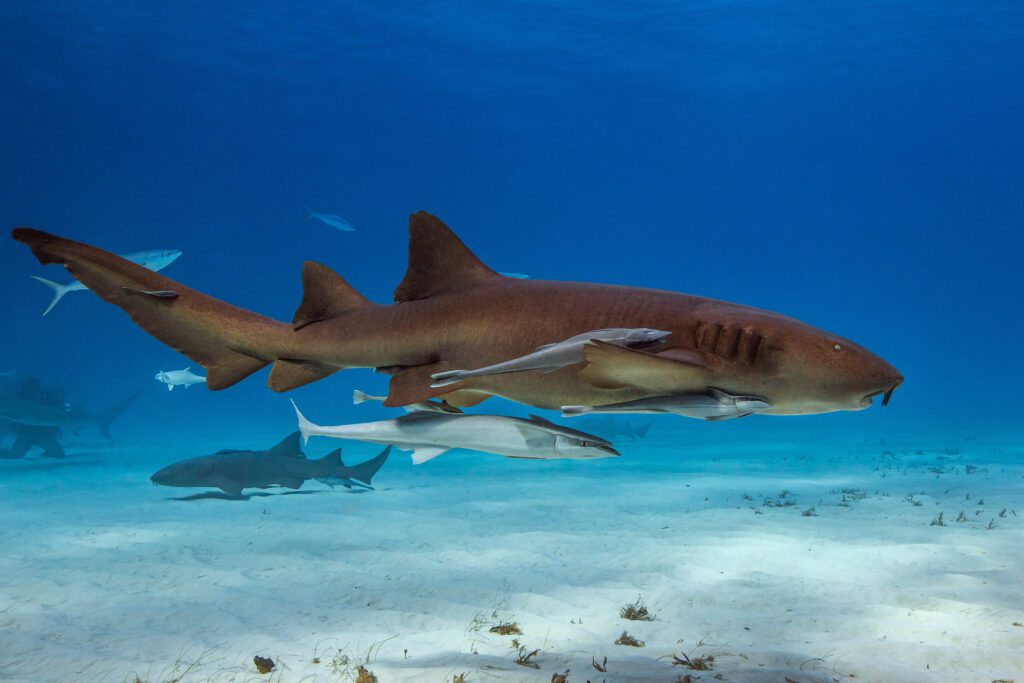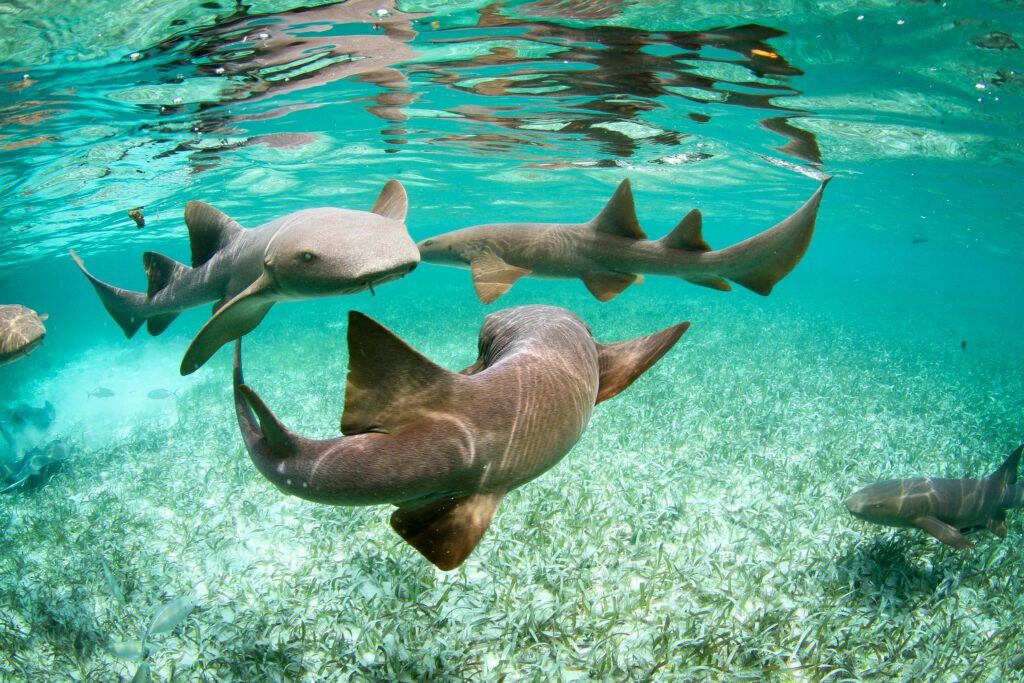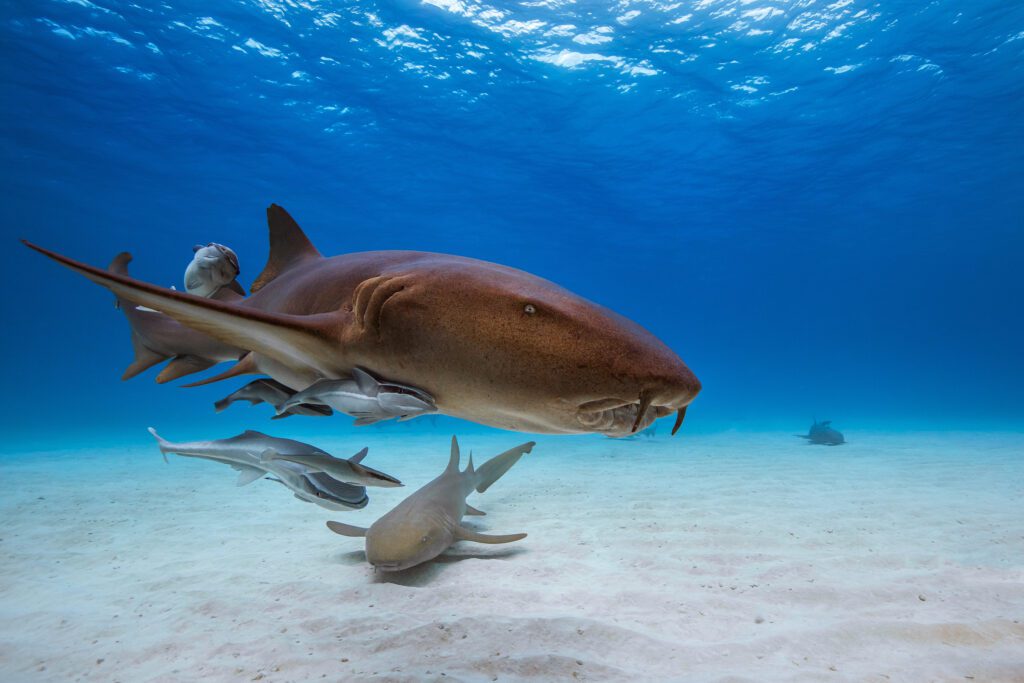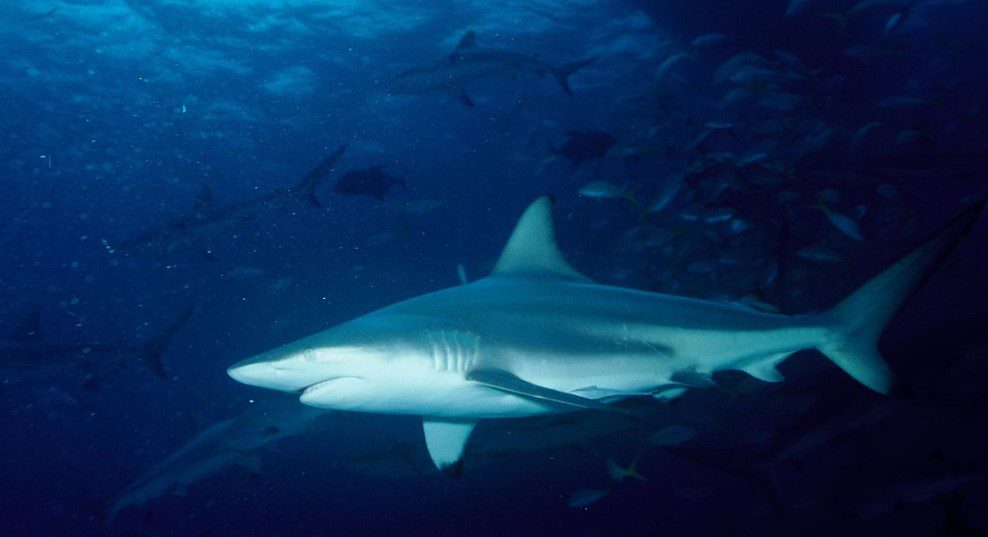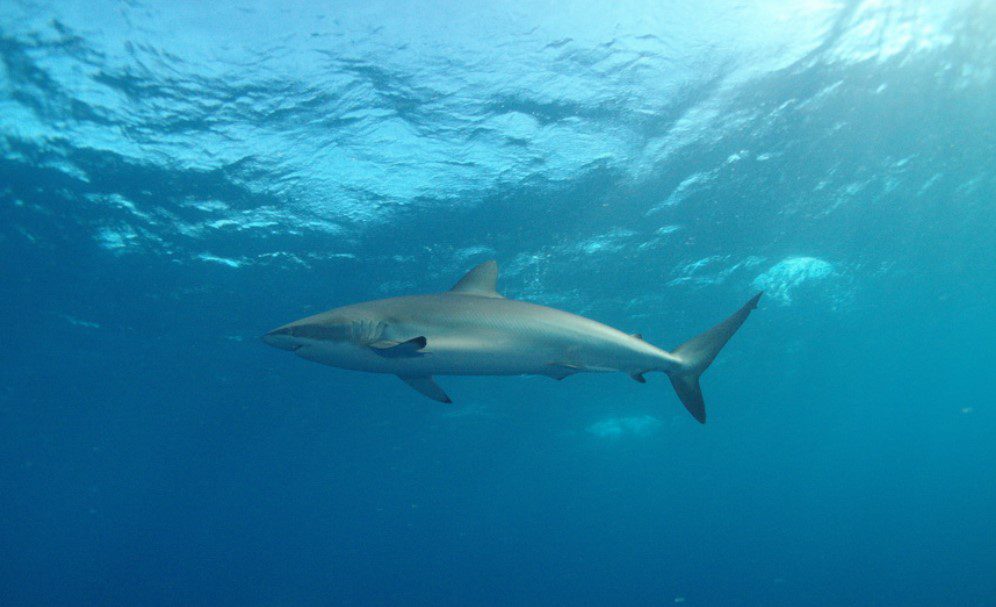Nurse sharks are benthic, or bottom-dwelling, sharks that are common in tropical and temperate seas in the Atlantic Ocean. Some divers (and scientists) consider them lazy as they are often encountered sleeping under reef overhangs during the day, but nurse sharks are in fact largely nocturnal and are quite active after dark. While many sharks need to swim in order to breathe, nurse sharks can pump water over their gills using ‘buccal pumping’, or opening and closing their mouths. Nurse sharks largely are harmless to humans, as they are obligate suction feeders, using their small teeth mostly for gripping; however, unwary snorkelers or divers have had hands and fingers injured by nurse sharks looking for a handout at feeding sites.
Although nurse sharks have been fully protected from fishing in Belize since 2012, their long generation times make them slow to recover from overfishing – studies have estimated that nurse sharks do not reach sexual maturity until 25 years of age! Our research has found that there are roughly 3,800 to 14,400 nurse sharks throughout Belize. The highest densities of nurse sharks were found at the atolls furthest away from the mainland, where fishing pressures are lower.

